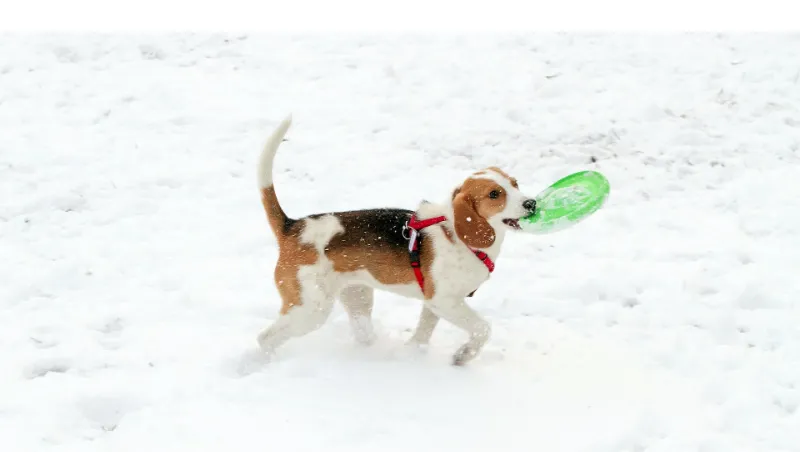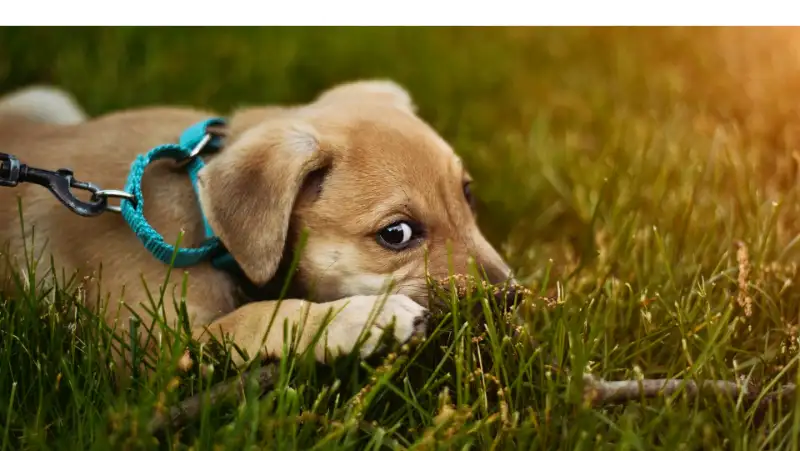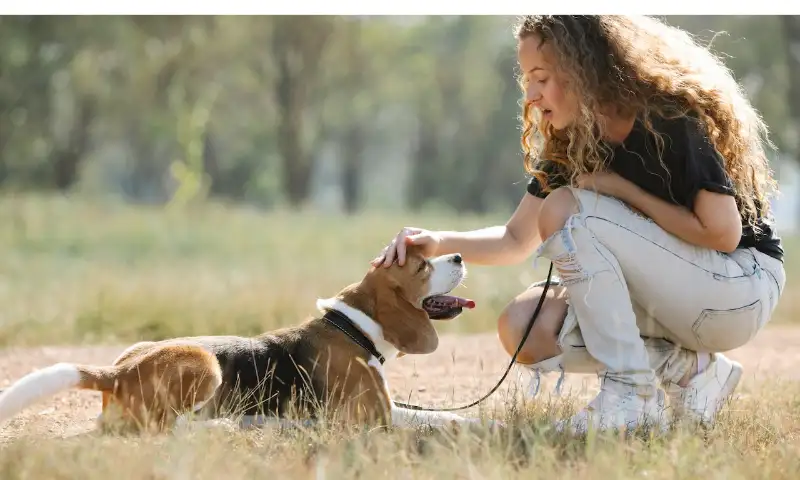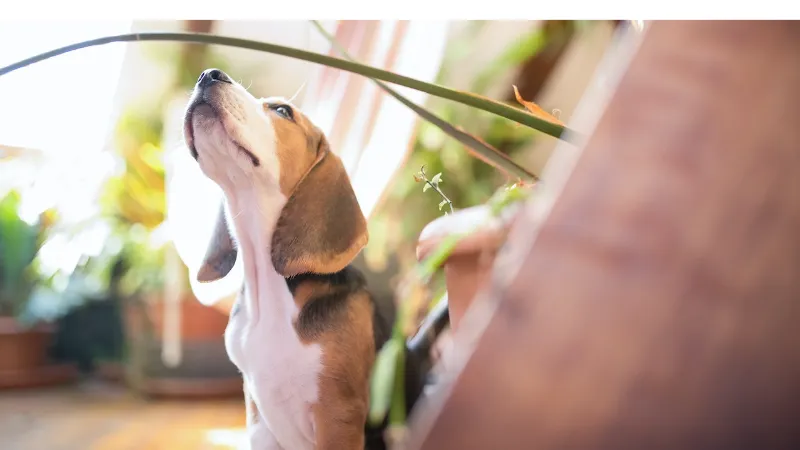Golden Retrievers are one of the most popular dog breeds in the United States, and it’s no wonder why. With their friendly demeanor and intelligence, they make fantastic family pets.
Understanding the golden retriever puppy behavior stages is key to raising a well-behaved and well-adjusted companion.
In this blog post, we’ll walk you through the different stages of growth and development of these lovable pups.
Now that you know a little more about the breed, let’s dive into the various stages of a Golden Retriever puppy’s development.
The Neonatal Stage (0-2 weeks)
During the neonatal stage, Golden Retriever puppies are entirely dependent on their mother for warmth, nutrition, and care.
Their eyes and ears are still closed, so they rely on their sense of touch and smell to navigate their world.
- Dependence on Mom: In this stage, the mother Golden Retriever is responsible for feeding her puppies, keeping them warm, and stimulating them to eliminate waste. Puppies should not be separated from their mom during this time, as her presence is vital for their survival and development.
- Early Socialization: Although the puppies are still mostly immobile, this stage sets the foundation for their future socialization. The bond formed with their mother and interactions with their littermates will begin to shape their personalities.
At this point, you might be wondering, “How long does the puppy stage last in Golden Retrievers?”
As you’ll see throughout this post, Golden Retrievers go through various stages of development, with each stage presenting unique challenges and milestones. Keep reading to learn about the next stage, the transitional stage.
Fun Fact #1: Did you know that Golden Retrievers were originally bred in Scotland in the mid-19th century as hunting dogs to retrieve waterfowl? Their gentle mouths and love for water made them the perfect choice for this task.
The Transitional Stage (2-4 weeks)
The transitional stage is an exciting time for Golden Retriever puppies as they begin to experience the world around them more fully. Their eyes and ears open, and they start to explore their surroundings.
- The World Begins to Open Up: As their eyes and ears open, puppies start to become more aware of their environment. They’ll begin to interact with their littermates, play with one another, and respond to sounds and visual stimuli.
- First Steps and Vocalizations: During this stage, Golden Retriever puppies will take their first wobbly steps and start to develop their own unique vocalizations, such as whining, yelping, and barking. This is also the time when their baby teeth start to emerge.
You might find the transitional stage to be one of the most endearing stages of Golden Retriever puppy growth. These little furballs are curious, playful, and just beginning to show their personalities.
As they continue to develop, they’ll enter the crucial socialization stage.
Fun Fact #2: Golden Retrievers are often used as therapy dogs due to their calm and comforting nature. They have been known to help people with anxiety, depression, and other emotional challenges.
The Socialization Stage (4-12 weeks)
The socialization stage is critical in a Golden Retriever puppy’s development. This is the time when they learn how to interact with other dogs, humans, and their environment.
Proper socialization is essential for ensuring your pup grows up to be a well-adjusted adult dog.
- Learning from Littermates: During this stage, puppies learn essential doggy manners and communication skills from their littermates. Play-fighting helps them understand bite inhibition, and they start to learn their place in the pack hierarchy.
- Human Interaction and Training: Puppies should be introduced to various people during this stage to help them develop a positive association with humans. It’s also an excellent time to start basic obedience training, as they’re highly receptive to learning. You may even begin crate training and housebreaking during this time.
- Fear Imprinting Period: Between 8-10 weeks, puppies go through a “fear imprinting” period. During this time, they’re more sensitive to scary or negative experiences. It’s crucial to avoid exposing them to anything that might cause trauma during this period, as it could have long-lasting effects on their behavior.
This stage is a prime time to introduce your Golden Retriever puppy to new experiences and begin training. For more tips on raising a Golden Retriever puppy, check out our guide on how to raise a Golden Retriever puppy while working.
The Juvenile Stage (3-6 months)
As Golden Retriever puppies enter the juvenile stage, they become more energetic and curious about their surroundings.
This is a fun and sometimes challenging time for new puppy owners, as their pups may start to test boundaries and explore their environment more assertively.
- Exploring the Environment: During this stage, puppies are eager to explore and may become more prone to chewing on things they shouldn’t. Be prepared to puppy-proof your home and provide plenty of safe and appropriate chew toys to help them through this phase.
- Establishing Hierarchy: Puppies will start to understand their place in the family hierarchy during the juvenile stage. Consistent rules and boundaries are crucial to ensure they understand their role and expectations.
- Obedience Training: This is an excellent time to continue obedience training, as puppies are still eager to learn and please their owners. Reinforce basic commands like “sit,” “stay,” and “come,” and consider enrolling your pup in a puppy obedience class.
During the juvenile stage, being patient and consistent with your Golden Retriever puppy is essential. It’s a time of exploration and learning, and with proper guidance, they’ll grow into well-behaved adolescent dogs.
Remember to check out our article on Golden Retrievers’ barking habits for more tips on managing their behavior.
The Adolescence Stage (6-18 months)
The adolescence stage can be a challenging time for Golden Retriever owners as their dogs go through significant physical and mental changes.
During this period, your pup may test your patience, but you can help them navigate this stage successfully with consistency and understanding.
- Pushing Boundaries: Like human teenagers, adolescent Golden Retrievers may push boundaries and test limits. Maintaining consistent rules and boundaries is crucial to respecting your dog’s authority.
- Physical and Mental Development: Your Golden Retriever will experience a growth spurt during this stage and may become more energetic and agile. Continue to provide them with plenty of physical and mental stimulation to keep them happy and healthy.
- Continued Training and Socialization: Consistent training and socialization are crucial during adolescence. Reinforce previously learned commands and expose them to various situations, people, and other animals to ensure they remain well-adjusted and comfortable in different environments.
“What age is most difficult for Golden Retrievers?” Some might argue that the adolescent stage is the most challenging, but with patience and consistency, you can successfully guide your furry friend through this period.
The Adulthood Stage (18 months onwards)
Once your Golden Retriever reaches adulthood, it will begin to settle into a more predictable and stable routine. Their energy levels may decrease slightly, and their behavior should be more consistent.
However, it’s still essential to maintain proper training and socialization throughout their lives.
- Settling Into Maturity: Adult Golden Retrievers are known for their friendly and easygoing nature. They make wonderful family pets and are generally well-behaved with other animals and people. Their behavior should become more predictable and consistent as they settle into adulthood.
- Maintaining Good Behavior: Continue reinforcing positive behaviors and regular training sessions to ensure your Golden Retriever remains a well-behaved and well-adjusted adult dog. Regular exercise, mental stimulation, and social interaction are crucial for their overall well-being.
Conclusion
In conclusion, understanding the various golden retriever puppy behavior stages is crucial to raising a happy, healthy, and well-adjusted dog.
From the neonatal stage to adulthood, providing proper care, socialization, and training will ensure your Golden Retriever grows up to be a beloved and well-behaved family member.










